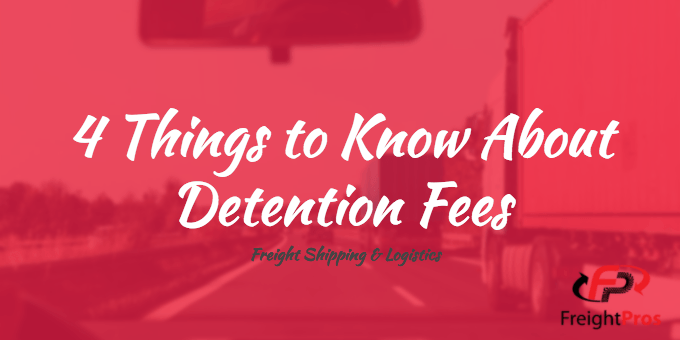
Detention fees are a pain. There’s no way around it. But if you’re a regular freight shipper, you’re going to have to deal with truck detention charges.
The best way to handle these fees is to learn about them up front. With some basic information, you can plan your freight shipments around detention fees, and help you and your freight broker, avoid them.
1.) What is “detention charges” in shipping terminology?
A detention fee is assessed when the truck is held at the pickup or delivery location longer than the allotted “free time.” Now, the “free time,” varies depending on carrier. Generally, it’s two hours at pickup and two hours at delivery.
2.) Are they applicable in both Truckload and LTL shipping?
Usually detention charges are only applied in truckload shipping. Though it is possible to get these fees in LTL, they’re very rare. If an LTL carrier is forced to wait more than 15 minutes or so, the driver will usually just leave the pickup or delivery location.
They have too many other stops to make on their route. Though this can sometimes lead to a dry run fee, it won’t be a detention fee.
3.) How much are these fees?
They’re usually between $50 and $100 per hour. It depends on the carrier, but you can always figure out how much detention will be before shipping.
You can also negotiate detention ahead of time if you plan on taking more than the allotted free time for pickup or delivery. Freight brokers can help you with these negotiations.
4.) How can I avoid detention fees?
There are three things you need to do to best avoid truckload detention fees.
- Make sure the freight is ready to go at the time of pickup. Packaged correctly, with a forklift or dock ready to load.
- Make sure the load paperwork is ready to go at the time of pickup.
- Communication is key. Make sure communication lines are open between broker, driver, carrier, shipper, and receiver.